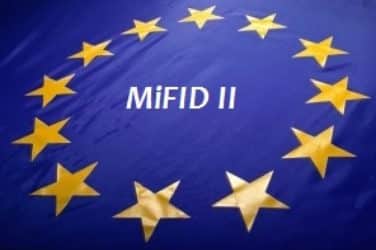The European Securities and Markets Authority (ESMA) has published its 2018 Work Programme (WP), which sets out its priorities and areas of focus for 2018 in support of its mission to enhance investor protection and promote stable and orderly financial markets.
The 2018 WP takes into account ESMA’s Strategic Orientation 2016-2020 and reflects the shift in focus of ESMA’s work, from building the single rulebook, towards two key activities: supervisory convergence and assessing risks. In addition, the possible changes proposed under the ESAs and CCP Reviews and ongoing planning for the UK’s exit from the European Union (EU) present a changing environment for ESMA. This will require it to be prepared to adapt and reprioritise the 2018 WP as needed.
For 2018, the key areas of focus under ESMA’s activities of supervisory convergence, assessing risks, single rulebook and direct supervision will be:
- Providing guidance and promoting the consistent application of MiFID II and MiFIR by market participants and National Competent Authorities (NCAs);
- Ensuring the quality, integration, usability and transparency of the data that ESMA collects;
- Contributing to the development of Level 2 measures in relation to the revised Prospectus regime; and
- Enhancing the effectiveness and lasting impact of supervisory activities at individual credit rating agencies (CRA) and trade repositories (TR) level.
Steven Maijoor, ESMA Chair, said:“ESMA will focus on promoting supervisory convergence and assessing risks in 2018 with a particular emphasis on promoting the consistent application of MiFID II and MiFIR. This reflects both the importance of ensuring a smooth transition to the new MiFID regime and our shift as a supervisory authority from building the single rulebook to ensuring its application through convergent supervisory practices across the European Union.”
“Additionally, we will need to be alive to the risks and challenges presented by developments regarding ESMA’s mandate under the ESAs and CCP Reviews, as well the preparation required for the UK’s departure from the European Union. We will be flexible in adapting and reprioritising the Work Programme to this changing environment”
“The activities set out in the 2018 Work Programme, will contribute to ESMA meeting its responsibilities in enhancing investor protection and promoting stable and orderly markets.”
Work Programme 2018
ESMA’s priorities and key areas of work for 2018:
- Promoting supervisory convergence – Continue to support sound, efficient and consistent implementation of new supervisory requirements, with particular emphasis on MiFID/R; complete IT systems either required by legislation or which increase ESMA’s and/or NCAs’ efficiency; and develop and apply convergence tools, including peer reviews and stress tests;
- Assessing risks to investors, markets and financial stability – Enhance analytical input into ESMA’s operational work, including stress tests, impact assessments, product assessments and financial stability monitoring; and establish adequate data management and statistics capabilities;
- Completing the single rulebook for EU financial markets – Complete technical standards and technical advice related to key legislative developments, e.g. Securitisation, Prospectus, MMF, EMIR Review; and maintain the existing Single Rulebook; and
- Directly supervising specific financial entities (CRAs and TRs) – Intensify supervision to ensure compliance with the spirit of the regulation. A small increase in the number of entities to supervise, particularly TRs, is expected in 2018.
The overall budget for 2018 is expected to be €42,051,386 with a projected staff of 232.
Source: ESMA
Ooh, interesting … ESMA’s 2018 work programme includes a review of its UCITS #ETF guidance https://t.co/Ro2ULBBqre pic.twitter.com/Ehmo7btWIF
— Sean M Tuffy (@SMTuffy) October 5, 2017




